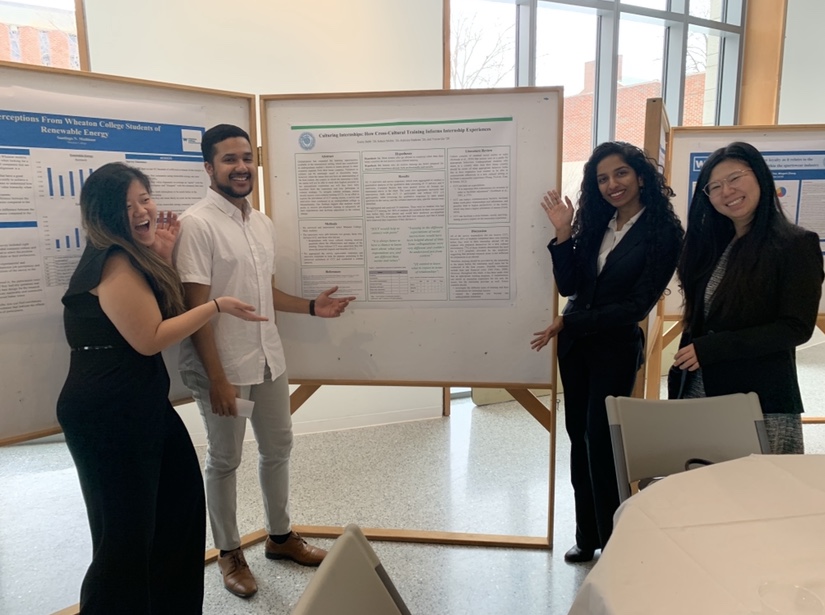Culturing Internships: How cross-cultural training informs internship experiences
Researchers: Emily Babb ’20 (Business and Management, Mathematics and Economics), Yuyue Gu ’20 (Business and Management), Ashraya Sapkota ’20 (Business and Management, conc. in Analytics), Soheir Mobin ’20 (Business and Management, English Literature)
“I had no idea what was going on”
“I wasn’t sure what was expected of me”
“I felt lost, confused, and alienated”
Globalization has expanded the learning opportunities available in the international setting, which has contributed to undergraduate student’s desires to intern abroad in other countries separate from their home countries. As a group, my peers Emily Babb, Yuyue Gu, Ashraya Sapkota, and myself came from incredibly diverse backgrounds and experiences. We understood the discomfort that comes from being in a culture you are unfamiliar with, and have experienced the effects it has when individuals act ignorantly towards your own culture.
Regular full-time employees of companies are invested in, they are given cross-cultural training before they go on assignments abroad. Cross-cultural training is a series of programs that inform and attempt to provide a toolkit to the employee, so they can be respectful and aware of the international environment they are entering. Usually, business practices and behaviors can change from border to border, so being aware of these practices significantly impacts how one builds relationships and engages with their colleagues on work assignments.
Interns work on behalf of a company for a short period of time, but may be given charge over key responsibilities and tasks, so even though their time is short, their work is valuable. However, interns don’t often receive cross-cultural training. As a result, we realized that interns who acquired international opportunities were experiencing a divide that would affect their ultimate takeaways from their experience.
Being unaware of one’s host culture decreases levels of engagement and confidence in an intern, which makes it difficult for them to truly learn from their experience. Moreover, interns that behave inappropriately, professionally or socially, can jeopardize relationships and productivity in the workplace, and in the extreme case, can jeopardize their safety. So, for our Business Senior Seminar research project, our group produced the work, Culturing Internships: How cross-cultural training impacts internship experiences.

Our group focused on building a research project that assessed and understood how much cross-cultural training could improve an intern’s international experience, and whether the lack of it meant something to these interns themselves. We had to rely on the quality of the data we gathered, rather than the quantity, focusing on content analyses of our qualitative data. Basically, we broke down our interview responses and identified repetitions and patterns. As a result, we gained valuable insights into the internship experience.
We learnt from students that they did experience some levels of uncertainty when they first began their internships. It took them time to navigate and deduce what behaviors were acceptable and which ones weren’t. Even so, sometimes interns had to rely heavily on the information provided by the individuals around them in order to understand certain practices and beliefs.
Language barriers and expectations from their employers, managers, and colleagues were the greatest points of concern for our interviewees. The students had one poignant view in common, that nothing could prepare them more than being in the culture itself. The immersion into the experience is what pushed them to adapt, however, there was an amount of stress associated with this. Many students believed that a form of pre-departure training would have greatly helped, as they could have been given the foundation on which to build their cultural knowledge.
In the end, our project was an incredible experience that challenged us as academic scholars, researchers, and teammates. We were greatly supported by our Professor Speights, who gave us invaluable edits and ideas to keep moving forward. Professor Bray gave us the starting points for finding thought leaders and academic materials that related to our study, kindly sharing sources from his own research. The library and Qualtrics support were also pivotal in helping us conduct our research in a streamlined and easy format. I’d like to thank my project team, and the greater Wheaton team that helped us bring this together, it was beautiful to watch another idea breathe into life.
-
Categories:
- Academic Festival